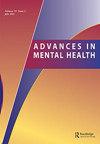Improving access to cognitive behavioural therapy groups for postnatal women following partnership work: a service evaluation
IF 1.4
Q3 PSYCHIATRY
引用次数: 3
Abstract
ABSTRACT Objective: Postnatal depression (PND) can adversely impact the wellbeing of the mother and child. However, accessing mental health support is a challenge for the perinatal population. While most studies have focused on the effectiveness of stand-alone interventions in treating PND, recent studies have highlighted the need for collaboration and inter-agency working. This study evaluated the impact of partnership working on the effectiveness of cognitive behavioural therapy (CBT) groups for women with PND and anxiety in an Improving Access to Psychological Therapies (IAPT) service. Method: This study is a service evaluation conducted within a primary care setting. It compares engagement and outcomes from pre-partnership groups that were delivered before the development of local partnership working arrangements with post-partnership groups developed in collaboration with a secondary care perinatal mental health service (PNMHS). Participants attended either pre-partnership (N = 26) or post-partnership (N = 19) CBT groups. Results: Following developments in partnership working arrangements, the diversity and number of referrals to CBT groups significantly increased, with a 50% increase in self-referrals. Retention from referral to start of treatment was high, with an increase to 100% following partnership working arrangements (88.5% vs. 100%). Completion rates were also higher following partnership working arrangements (84.2% vs. 61.5%). However, these differences and differences in recovery outcomes did not reach statistical significance. Discussion: Overall this study has found promising results for the effectiveness of partnership working on perinatal care, particularly when improving access to mental health services for women with PND and anxiety.改善产后妇女在伙伴关系工作后接受认知行为治疗小组的机会:一项服务评估
摘要目的:产后抑郁症(PND)会对母亲和孩子的健康产生不利影响。然而,获得心理健康支持对围产期人口来说是一项挑战。虽然大多数研究都集中在治疗PND的独立干预措施的有效性上,但最近的研究强调了合作和机构间工作的必要性。本研究评估了在改善心理治疗(IAPT)服务中,认知行为治疗(CBT)小组对患有PND和焦虑的女性的有效性的影响。方法:本研究是在初级保健环境中进行的服务评估。它比较了在制定地方伙伴关系工作安排之前提供的伙伴关系前小组与与二级保健围产期心理健康服务机构合作建立的伙伴关系后小组的参与情况和成果。参与者参加了合作前(N = 26)或合作后(N = 19)的CBT组。结果:随着伙伴关系工作安排的发展,转介到CBT组的多样性和数量显着增加,其中自我转介增加了50%。从转诊到治疗开始的保留率很高,在合作工作安排后增加到100%(88.5%对100%)。合伙人工作安排后的完成率也更高(84.2%对61.5%)。然而,这些差异和恢复结果的差异均未达到统计学意义。讨论:总的来说,这项研究发现了围产期护理伙伴关系的有效性,特别是在改善PND和焦虑症妇女获得精神卫生服务的机会方面。
本文章由计算机程序翻译,如有差异,请以英文原文为准。
求助全文
约1分钟内获得全文
求助全文

 求助内容:
求助内容: 应助结果提醒方式:
应助结果提醒方式:


